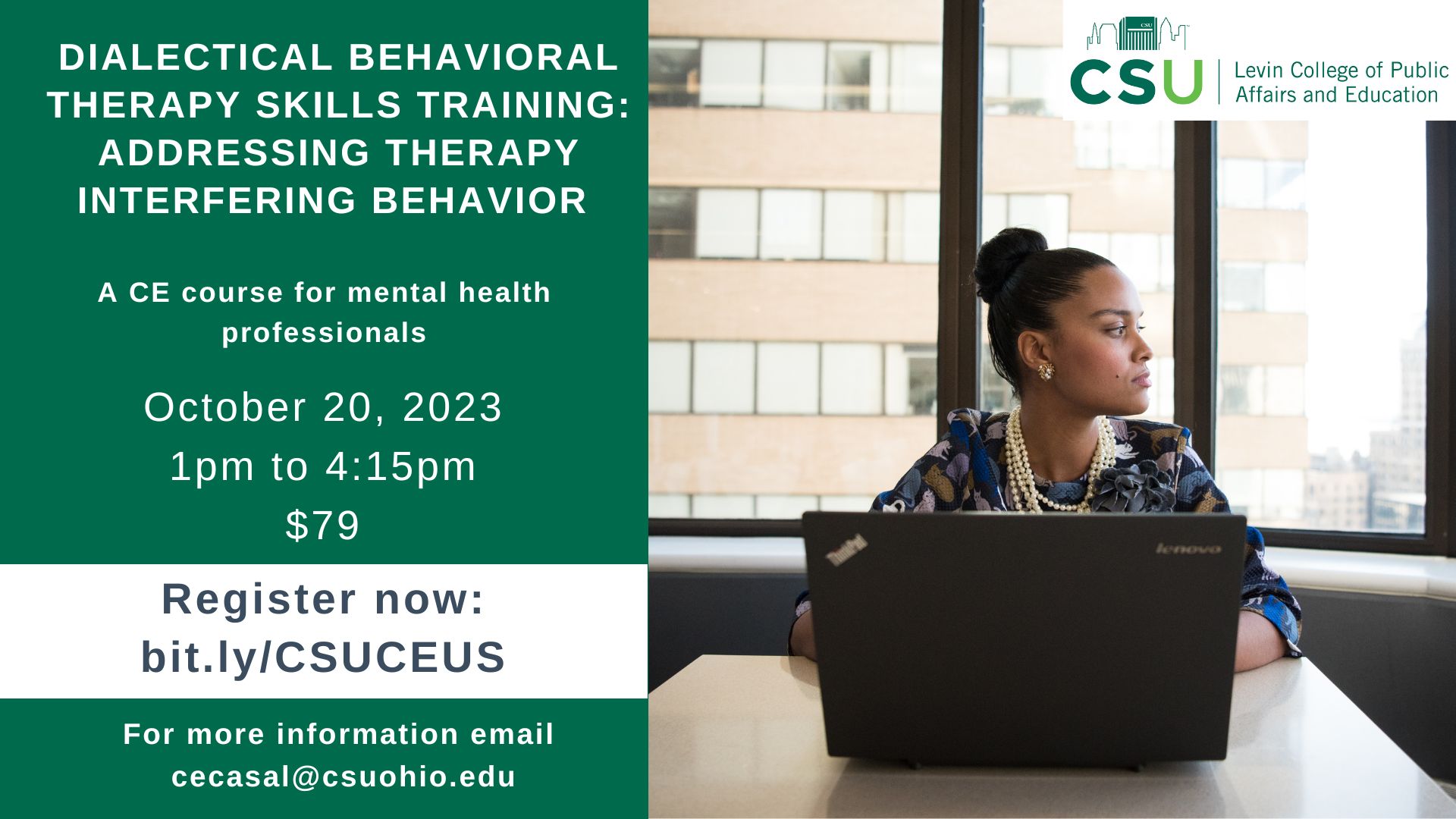LINK TO UPCOMING COURSES HOMEPAGE

Presenter: Betty Maceo, M. Ed, LPSC
Experiencing the pandemic has made many educators more aware of the importance of social emotional learning (SEL) and the impact it has on educational success. This experience also exposed the racial tensions and social injustices in society which found their way into our schools and classrooms. ALL educators need to be culturally competent to effectively reach and teach students who are of a different culture than their own. This workshop will review SEL competencies, go more in-depth as to what culture is, address both implicit and explicit biases, and share examples of what a culturally responsive classroom looks like. SEL activities which will help foster a culturally responsive classroom will be shared as well as strategies and techniques that promote cultural competency which in turn could also be used to develop culturally responsive educators, as well as to help foster academic success for all students.
_______________________________________________________________________________

Presenter: John Zbornik, Ph.D
This informative session delves into the complexities of this prevalent issue affecting students worldwide. We will explore what Academic Anxiety Disorders are, shedding light on the various manifestations and underlying causes. Equipping educators, mental health professionals, parents, and students with crucial knowledge, we'll outline practical methods to identify the symptoms early on. Dr. Zbornik will also share strategies to alleviate academic stress and foster a supportive learning environment.
_______________________________________________________________________________

Presenter: Kailey Bradley, MA, LPCC-S, NCC, FT
This training will address unique challenges facing those who have lost someone to suicide. Suicide loss is a complicated type of grief that often minimizes or disenfranchises those left behind. In this training, participants will become acquainted with the unique challenges faced by suicide loss survivors while at the same time be given concrete skills and interventions to be able to use with suicide loss survivors in diverse clinical settings.
_______________________________________________________________________________

Presenter: Robin Leichtman, PhD, LPCC-S
Course Description: Participants will explore the gifts of sorrow that arise from sitting with grief and in the process learn ways to cope; build resilience; find meaning and purpose; and develop a support system. By way of aesthetic diagnosis, human suffering can be met by way of a therapeutic alliance, a relational approach, with the client. Using a Gestalt/Humanistic/Relational approach, participants will explore the gifts, the wisdom, that arises from sitting with sorrow and shifting to acceptance and improved mood.
_______________________________________________________________________________

Presenter: Rachel Bowers MSSA, LISW-S, PMH-C
Course Description: When we think of mental health during the perinatal period postpartum depression is the foremost diagnosis that comes to mind. However, pregnant and postpartum individuals may present with symptoms of other perinatal mood and anxiety disorder (PMADs). This course will review the developmental implications of the perinatal period, the prevalence and presenting symptoms of perinatal mood and anxiety disorders as well as evidence based treatment options for these diagnoses.
_______________________________________________________________________________

Presenter: Christine Elliott, PhD
Course Description: The ethical considerations of behavioral health session termination can be challenging. Ideally, the termination of behavioral health sessions is a positive experience for both the client and mental health professional. The first step to achieving positive termination is careful planning that starts during the first session. This course will provide mental health professionals with tools and skills to establish goals and determine, with client input, what a successful termination will look like. By following these tips the hope is to avoid premature session termination and help the client on the road to mental wellness.
_______________________________________________________________________________
 Presenter: Samantha Mishne, LISW-S, LICD-CS
Presenter: Samantha Mishne, LISW-S, LICD-CS
Course Description: Dialectical Behavioral Therapy (DBT) is a structured psychotherapy designed to assist clients experiencing intense emotions. When implemented properly, research has found the approach to have a high success rate treating challenging mental health diagnoses such as borderline personality disorder, eating disorders, and substance abuse. This training will support clinicians understanding of how skills training is implemented in Dialectical Behavioral Therapy by focusing on the four skills training modules: Mindfulness, Emotion Regulation, Distress Tolerance and Interpersonal Effectiveness. The program will include addressing therapy interfering behavior. This course is designed for mental health professionals practicing DBT therapy and also for those seeking to learn about DBT approaches in order to develop their tool box to assist clients with mental wellness.

